Yesterday I was on the phone talking with my friend Melodye about a rare and happy intersection of creativity and commerce, when a great bird dropped from the sky onto our lawn in Maine. I interrupted, “Do you mind if I grab my camera? Peter will want to see this.” She graciously agreed, while I rummaged through my bag. The heron waited, too. I got my shot, but felt my heart expand more as it spread those crazy wings and swept from my frame, turning from a prehistoric-looking creature into something that fit perfectly into the sky. Something my photos cannot capture.
That feeling of can-I-ever-get-what-I-envision is always with me when I write. There’s that glimpse of grace, then the much longer scrambling attempts to hold it, or at least the tip of a wing or foot. There’s the failure. The trick is not to get bogged down there, but to remember the first feeling of connection with something fine, though that may not ever match the image. I was disappointed with my heron photo, but emailed it to my husband as a journal-like bit of my day, knowing he’d fill in the feeling. He sent it back to me having done some enlarging and tweaking; the bird did look more impressive, but still looks so much cooler flying or in water than on the ground. Or does it? Can I stay with that picture and find more beauty than is first apparent? That’s the challenge with writing, too. If we keep on looking for words that may not match our first vision, and maybe look deeper, can we find something more wonderful even than what we first imagined?
Every moment of writing may be one of juggling a sense of inadequacy and hope. Robert Frost wrote, “In each line, in each phrase the possibility of failure is concealed. The possibility that the whole poem, not just the isolated verse, will fail. That’s how life is: at every moment, we can lose it.” Oh, Mr. Frost, yes. We reach and miss and when we’re lucky, we grasp something new. Which is a reason to keep on.
For more Poetry Friday posts, please visit The Miss Rumphius Effect, where Tricia is also celebrating Robert Frost.
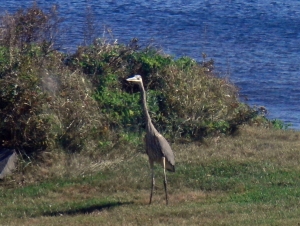



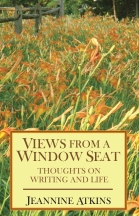

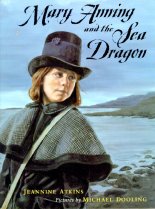
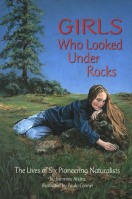

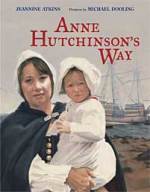
I love your description of the heron. “…turning from a prehistoric-looking creature into something that fit perfectly into the sky.” We have one who comes and fishes from the rocks in the creek behind our house. I sit and watch him jut forward with his head, pick up one leg and move it forward in slow motion, scan the water with patient intensity, then strike with devastating speed. I actually created a character in a fiction story based on that bird. Maybe one day I’ll pick it back up and finish it. Perhaps the fear of failure is what keeps it on the back burner.
By: dorireads on October 10, 2014
at 2:04 pm
That’s great you have a heron for regular company. And nice he was the inspiration for a character. I listened to an interview with Karen Hesse at the end of the audio of Witness, and she mentions that she had an animal in mind for each of the characters.
Oh, failure. Maybe we just need to find another name? We can’t quite do justice to our visions, but sometimes good enough is another kind of perfect, right?
By: jeannineatkins on October 10, 2014
at 4:17 pm
That “can-I-ever-get-what-I-envision” thing is so familiar to me. I have felt it many times when starting a drawing, and recently — last night, in fact — I felt it in pottery class, when my declared goal was to make four plates, four bowls, and four mugs which had sizes and shapes consistent one to another. I didn’t succeed as well as I was hoping I would, in my vision for what these pieces could be, in large part because my skill set in shaping clay as it spins on a wheel is not yet what I want it to be.
But maybe that’s okay. After all, will the people who eat off those plates and drink from those mugs fret about their meal because there are small variations in the sizes and shapes within the set? Likely not.
I think it’s probably a good thing to remember that — with rare exceptions — our audience doesn’t ever see the products of our endeavors in the same way we do, especially for those of us with some perfectionist tendencies. Knowing when to stop fussing over our work is probably at least as important as knowing how to start it.
After all, if a mug fits comfortably in your hand, and holds as much hot tea as you care to enjoy, what’s not to like?
(By the way, all I did with Jeannine’s heron photo was straighten it and adjust the color cast slightly. She was the one who caught this lovely moment, and to do so in a hurry is quite the feat, in my opinion.)
By: PL on October 10, 2014
at 3:59 pm
Much as we’re taught to get things right, there’s some magic in the just missing of that mark, too. Art of all kinds does seem a matter of aiming high, but also embracing what’s there. You can buy a smooth perfectly formed mug at any store, but part of the charm of pottery is when we still feel the presence of real hands in the work, with both talent and human imprecision.
Thanks for your reflections, photo help, pottery, and more! xo
By: jeannineatkins on October 10, 2014
at 4:14 pm
Well, right here — you captured this bit of unexpected magic, the fleeting moment, the wonder of it in your simple words. Beautiful heron. 🙂
I think anyone in a creative field feels a little “failure” in not being able to fully capture/express what was initially envisioned. It’s what keeps us reaching and trying — we need that to keep pulling us forward.
There’s much truth in what Peter says too — others view our work differently, we are hardest on ourselves and often only see the imperfections — oftentimes, these are the very elements other people love the most.
Love what you said about embracing what’s there. I cherish the “presence of real hands in the work!”
By: jama on October 10, 2014
at 4:51 pm
Thank you for all the supportive comments, Jama. It does seem to take a lifetime to balance the striving for something close to perfection, and all the adjustments of letting that go.
By: jeannineatkins on October 11, 2014
at 2:03 am
I often have these kinds of moments when I’m on vacation. I want so much to remember everything– to catch the dolphins, the pelican V overhead, but instead I get down on myself for spending too much time staring through the camera lens and not enough time just experiencing it in the moment. I allways enjoy your window seat views, Jeannine.
By: Michelle Heidenrich Barnes on October 10, 2014
at 9:23 pm
Yet one more thing to balance — just experiencing things, and shaping ways to remember. I like to think that we’ll remember what matters, with or without words or pictures. But those can add to an experience, too.
By: jeannineatkins on October 11, 2014
at 2:05 am
Love the connection made, Jeannine. I was told all my life when a heron appeared in one’s life that it meant good things (good luck perhaps) for that day. What a special thing happened to you, no matter the photo or not-still you remember. Thanks for sharing, too.
By: Linda Baie on October 10, 2014
at 11:17 pm
I never heard that about a heron bringing luck, but when I’ve seen them, I certainly pause. Have you read Sarah Orne Jewettl’s story, “A White Heron?” One of my favorites. Thank you, Linda!
By: jeannineatkins on October 11, 2014
at 2:06 am
That was such a special moment, and I’m so glad I was able to share its magic (its majesty) with you, Jeannine, albeit from a distance.
I love reading that herons are harbingers of good luck. Too, I enjoyed Peter’s analogies. It never occurred to me, as someone who cherishes handcrafted gifts like no others, that there’s an inherent beauty in the things that we, as writers so close to our craft, might see as imperfections. And more to the point, that my readers might not even perceive them as such. For better and worse, these are the types of things that lead us toward — or away from–our good fortune.
Yes, Mr. Frost is right: The opportunities for crash-landings are written into everything we say and do. But when a heron appears and two friends on opposite coasts allow themselves time to ponder its significance…well. There’s an irrepressible bit of magic in that. Hope, the thing with feathers…for all its prehistoric gawkiness, that heron (our conversation) made me look at things anew.
P.S. I’m thinking maybe I’ll envision those “possibilities of failure” as molted feathers, carried off by ocean breezes. 🙂 xo
By: Melodye Shore on October 11, 2014
at 3:15 am
You are right that a phone conversation across the continent is a sort of miracle in its own right, but lovely to have a heron join us. I love what you say about how when we work with our hands and eyes, words or clay, that inevitably we might consider something marred. Or might not. Sometimes we should trust those who read or use our work more than ourselves. At least ourselves-in-ungenerous-to-ourselves moods. Thanks for extending the conversation!
By: jeannineatkins on October 11, 2014
at 9:17 pm
Thanks for reminding me that I want to go back and re-read Frost’s book on writing.
By: joyacey on October 11, 2014
at 11:15 am
Yes, I could read his sentences over and over and still slowly find more. Those essays are rich!
By: jeannineatkins on October 11, 2014
at 9:18 pm
I always feel so fortunate when I see a heron. They’re such beautiful birds! I love the optimism in your thoughts about looking deeper and finding “something more wonderful even than what we first imagined.” Your posts always inspire me to keep on grasping for something new. Thank you!
By: readingtothecore on October 11, 2014
at 6:51 pm
Yes, herons seem so contemplative in the water, and in flight — hard to believe they can be so graceful, with those wide wings and kind of gawky legs. Thank you for reading!
By: jeannineatkins on October 11, 2014
at 9:19 pm
Keeping on is just what I needed to hear. Thank you, Jeannine.
By: Sarah Lamstein on October 12, 2014
at 10:01 am
I know you will keep on, and I’m glad. xo
By: jeannineatkins on October 13, 2014
at 2:07 am
I’ve added your last paragraph to my “quote wall” of stickies on my computer. I’ll want to go back to those words of yours and Mr. Frost’s over and over again. Thank you.
By: maryleehahn on October 12, 2014
at 10:54 am
You must have quite a quote wall, Mary Lee, and I’m honored to have some words there with Robert Frost. If we can see failure as one part of the process, somehow it all seems easier.
By: jeannineatkins on October 13, 2014
at 2:10 am
Lovely post, Jeannine. Herons have a special grace — even when they’re looking prehistoric. I’m glad we have them here in Britain, too.
Every moment of writing may be one of juggling a sense of inadequacy and hope.
Oh, yes. Though for me it’s often a case of lurching from one to the other, and trying to carry on regardless. Which is a challenge.
By: Amy Butler Greenfield on October 12, 2014
at 7:07 pm
Amy, you’re right: lurching between can be perhaps more useful than juggling, which suggests we might see both phases at once, when really it’s all surprises. And, yes, the prehistoric gawkiness of the herons is part of their beauty. Thanks for writing. I’ve been thinking of you.
By: jeannineatkins on October 13, 2014
at 2:13 am
Frost’s words “That’s how life is: at every moment, we can lose it,” resonate with me so much right now. Or adopted summer town has just experienced the deaths of two teens in a week’s time. Life is precious, the heron coming to you was precious, and precious, too, are the words we set down to make sense of what we experience. Who’s to say whether they’re the perfect words or not? If they hold meaning, maybe that’s sufficient.
By: Joyce Ray on October 12, 2014
at 11:35 pm
I’m so sorry to hear about the tragedies in your town, which make carrying on so tough. I’m glad you can see life’s preciousness through the grief, and the solace of never-perfect but meaningful language.
By: jeannineatkins on October 13, 2014
at 2:17 am
“Every moment of writing may be one of juggling a sense of inadequacy and hope.” So true, Jeannine! Needed to read yours and Frost’s words tonight.
=)
By: Bridget Magee on October 13, 2014
at 3:30 am
Thanks, Bridget. Good luck with the failure that fades at just the right speed, and shows a path.
By: jeannineatkins on October 13, 2014
at 5:51 pm
This line: “Every moment of writing may be one of juggling a sense of inadequacy and hope. ” is a keeper, because it’s so true! Did you make that up? A new quote for my bulletin board. Thank you!
By: Violet Nesdoly on October 13, 2014
at 4:25 am
Hi, Violet, yes I wrote that line. I’m happy that you want to save it! Good luck with traveling between hope and its small lapses.
By: jeannineatkins on October 13, 2014
at 5:52 pm
So beautifully captured Jeannine — both your words on writing and the heron. I am truly inspired, your words describe exactly how I feel most of the time when writing. My mentor back in Sweden used to say that the text needs a little imperfection, and that helps me when I fall back to being a perfectionist. 🙂 Loved reading your post and the comments, you have a beautiful blog! “Good enough is another kind of perfect” — that’s my new motto!
By: Lene Fogelberg on October 14, 2014
at 3:42 am
So many of us are perfectionists, and maybe need that element to aim high. But it is smart to know when to let that go — maybe a lifelong struggle. I look forward to getting to know you and your work more. Thanks for coming by!
By: jeannineatkins on October 14, 2014
at 4:16 pm